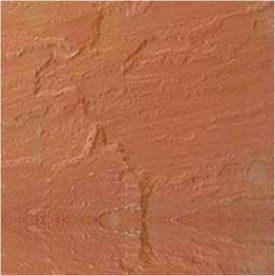Natural stone packaging: From processing units to your doorsteps
July 16, 2018 AdminNatural stones are hard and come in a raw form from stone quarries. Natural stones, such as marble, granite, sandstone, slate, and limestone, have to pass through some phases at stone processing units before it reaches to the doorsteps of end-users. The  natural stone tile or slab of your preference has to travel miles through seas and roads in securely-packed boxes, crates, and pallets. It is done so that stones can cope with all sorts of harsh treatments during the shipping from factories to ports to your country. To ensure your stones don’t break away while in transit, packing stones in wooden crates is the basic need.
natural stone tile or slab of your preference has to travel miles through seas and roads in securely-packed boxes, crates, and pallets. It is done so that stones can cope with all sorts of harsh treatments during the shipping from factories to ports to your country. To ensure your stones don’t break away while in transit, packing stones in wooden crates is the basic need.
Homeowners prefer tiles for natural stone flooring and slabs for stone wall cladding. But, natural stone needs much care and attention until it reaches your home after facing lots of challenges.
Materials suppliers need to pack natural stone tiles and slabs
Professional natural stone sellers and suppliers understand that packed materials are vulnerable to damages. Damage is natural while any stone passes through different phases of loading, unloading, and sea or road transportation. In addition, packers fumigate and treat crates chemically  before the dispatch. They use waterproof plastic to prevent the stone from being exposed to moisture, light, and cold. All-natural stone suppliers need to put an emphasis on using strong and functional packaging materials so that natural stone tiles can reach to the consumers’ place in a perfect condition. Generally, a wooden crate is used to pack the finished natural stones with the following ones:
before the dispatch. They use waterproof plastic to prevent the stone from being exposed to moisture, light, and cold. All-natural stone suppliers need to put an emphasis on using strong and functional packaging materials so that natural stone tiles can reach to the consumers’ place in a perfect condition. Generally, a wooden crate is used to pack the finished natural stones with the following ones:
- Packaging items, like polythene, foam, and thermocol.
- A strong plastic belt to make packed goods remain unmoved.
- The wooden crate labeled with its contents.
- Wrapped with plastic to prevent foreign substances from entering the crate.
- A strong corrugated box to export mosaics, roofing natural stone tiles, slate stone, and stacked and walling stones.
Packaging types for natural stone tiles and slabs
Although customized packing of stone is the most popular for protecting natural stones from being broken, stained, and damaged, yet there are also other options available for packing natural stone slabs and tiles. These popular options include:
Standard packaging: Packers use polythene inside the wooden crate to guard stones against staining from wooden planks. On horizontal planks, a foam-sheet is used to protect slabs and tiles from damage by wooden planks or nails. It is the most popular packaging type.
Pavers packaging: For packaging outdoor rough stones, packers use wood, hardboard, and foam sheet. These materials are useful for tightening loose gaps and protecting stones from being collided with each other.
Polished natural stone tile packaging: Packers prefer to use a 2mm-foam or a paper cloth to pack polished tiles in a wooden crate tightly. It is done in order to save the polished surface of stones from abrasion scratches.
Thinner tiles packaging: Thinner tiles of 10mm or 15mm size can break easily. That is why cardboard boxes are the best material to protect them. After packaging, these boxes are piled in the crate. The benefit of using the cardboard is to render tiles a cushion. Styrofoam (thermocol) boxes are also good for packing granite tiles and polished marble.
Specialized packaging:
- 15mm tiles with moisture – cardboard boxes
- Thicker tiles – polythene bags
- Thermocol sheets for extra protection
 For packing any slab, iron A-Frame or a wooden crate is the best option. On the other hand, cardboard boxes and thermocol boxes are the best materials for making natural stone tiles safe and secure in a wooden crate.
For packing any slab, iron A-Frame or a wooden crate is the best option. On the other hand, cardboard boxes and thermocol boxes are the best materials for making natural stone tiles safe and secure in a wooden crate.
Regatta Universal Exports is a professional natural stone tiles and slabs supplier from India. The company delivers its global customers a big range of stones for decoration and construction purposes properly packed inside strong wooden crates.








